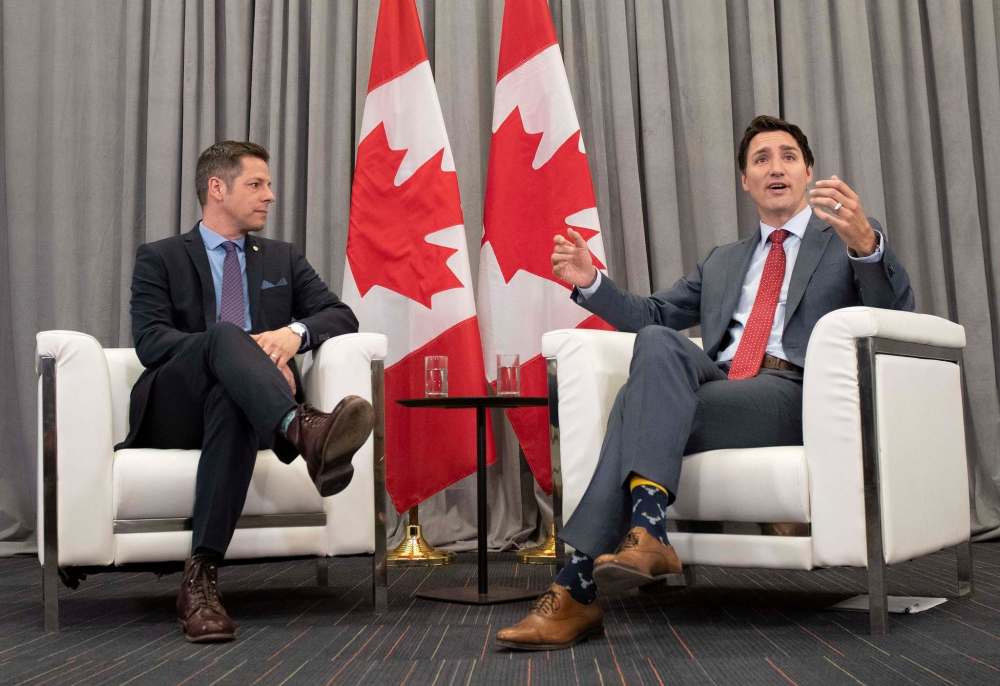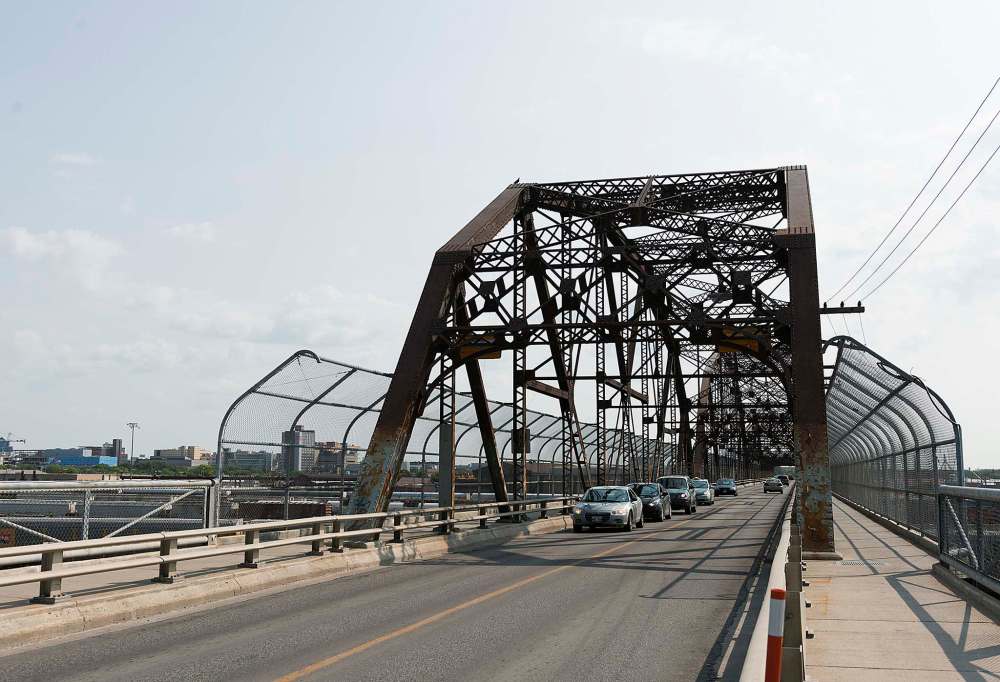City can’t replace Infrastructure without federal, provincial money, mayor says
Advertisement
Read this article for free:
or
Already have an account? Log in here »
To continue reading, please subscribe:
Monthly Digital Subscription
$0 for the first 4 weeks*
- Enjoy unlimited reading on winnipegfreepress.com
- Read the E-Edition, our digital replica newspaper
- Access News Break, our award-winning app
- Play interactive puzzles
*No charge for 4 weeks then price increases to the regular rate of $19.00 plus GST every four weeks. Offer available to new and qualified returning subscribers only. Cancel any time.
Monthly Digital Subscription
$4.75/week*
- Enjoy unlimited reading on winnipegfreepress.com
- Read the E-Edition, our digital replica newspaper
- Access News Break, our award-winning app
- Play interactive puzzles
*Billed as $19 plus GST every four weeks. Cancel any time.
To continue reading, please subscribe:
Add Free Press access to your Brandon Sun subscription for only an additional
$1 for the first 4 weeks*
*Your next subscription payment will increase by $1.00 and you will be charged $16.99 plus GST for four weeks. After four weeks, your payment will increase to $23.99 plus GST every four weeks.
Read unlimited articles for free today:
or
Already have an account? Log in here »
Hey there, time traveller!
This article was published 31/05/2019 (2388 days ago), so information in it may no longer be current.
The $4.9-billion cost of the 22 major capital projects in Winnipeg identified in a new report underlines the need for greater financial assistance from federal and provincial governments, Mayor Brian Bowman said Friday
In a conference call with reporters from Quebec City, Bowman said the report, first published by the Free Press Thursday and formally released Friday morning, identifies the major projects that need to be done.
“This report underscores the importance of having strong provincial and federal partners willing to help build our city,” he said. “We simply can’t do it all on our own.”

The administrative report, prepared for the June 11 executive policy committee meeting, stated that there are 22 major projects totalling $4.9 billion that should be built over the next 10 years, but no source of funding has been identified for most of the projects.
The report states that if the city were to finance the new projects solely through property taxes, it would require an additional three per cent property tax increase annually for the next 10 years, along with a 37 per cent increase in utility rates.
Bowman was in Quebec City this week for the Federation of Canadian Municipalities annual meeting and the meeting of the Big City Mayors Caucus.
“As a council, we’re going to have to make two difficult decisions about which projects are priorities for our city and how we’re going to finance those projects,” he said.
The report recommends that the administration prioritize the list of 22 projects before the end of the year for council’s consideration in its first-ever multi-year budget.
A summary of the report can be found here. The 36-page detailed report is available online here.
Bowman said council will ultimately decide which projects will be built and when, and how they will be financed.
The project list includes replacement infrastructure — new Arlington and Louise bridges — and new projects, including the south Winnipeg recreation campus, three new rapid transit corridors and extension of Chief Peguis Trail.
While the report suggests some of the funding could be found in the impact fee fund (the new charge on residential development), Bowman said those dollars should be used exclusively to offset the cost of projects resulting from the city’s growth.
The most recent financial report states the accumulated impact fee revenue totals almost $20 million, including $3.267 million collected in the first three months of 2019. The current budget predicts an additional $8 million for the remainder of 2019.

However, Bowman said that money would make little difference when talking about $4.9 billion for needed infrastructure.
He said the report has been made public to encourage debate in the community about the which projects should be funded and how that should be accomplished.
“We need to have dialogue, not just amongst councillors but as a community and with our provincial and federal partners about these projects,” he said.
Bowman met briefly with Prime Minister Justin Trudeau Friday morning, before the conference call with reporters, and he said the two leaders talked on a variety of topics, including the city’s infrastructure deficit.
While Trudeau didn’t commit to any individual project, Bowman said the PM understands the need for the provincial and federal government to help the city grow.
“As our population grows, so too does our need to maintain existing infrastructure while also building new infrastructure,” Bowman said. “We both have a shared desire to have all three levels of government working in partnership and in a collaborative manner. If we’re going to address the challenges we have, especially the infrastructure challenges, we need to be working together.”
aldo.santin@freepress.mb.ca


